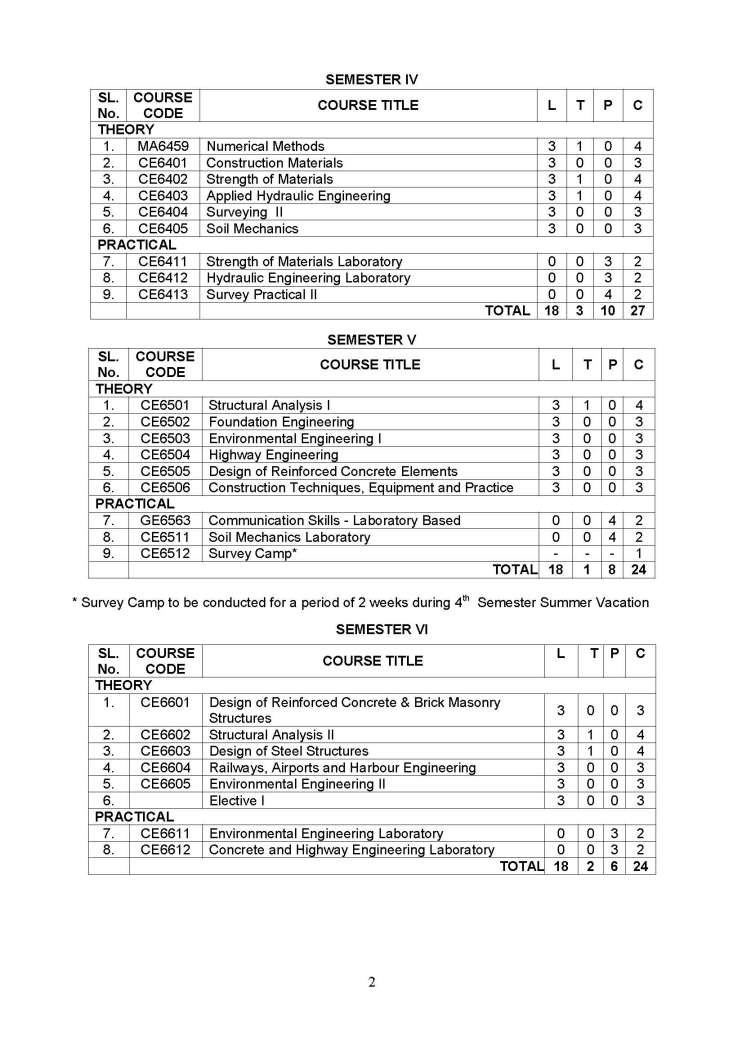|
#3
1st July 2020, 02:46 PM
| |||
| |||
| Re: Anna University Tindivanam
The syllabus for B. E. Civil Engineering Program offered by University College of Engineering Tindivanam, a constituent College of Anna University Chennai is as follows: B. E. Civil Engineering HS6151 TECHNICAL ENGLISH – I OBJECTIVES: • To enable learners of Engineering and Technology develop their basic communication skills in English. • To emphasize specially the development of speaking skills amongst learners of Engineering and Technology. • To ensure that learners use the electronic media such as internet and supplement the learning materials used in the classroom. • To inculcate the habit of reading and writing leading to effective and efficient communication UNIT I 9+3 Listening - Introducing learners to GIE - Types of listening - Listening to audio (verbal & sounds); Speaking - Speaking about one‟s place, important festivals etc. – Introducing oneself, one‟s family/ friend; Reading - Skimming a reading passage – Scanning for specific information - Note-making; Writing - Free writing on any given topic (My favourite place / Hobbies / School life, etc.) - Sentence completion - Autobiographical writing (writing about one‟s leisure time activities, hometown, etc.); Grammar - Prepositions - Reference words - Wh-questions - Tenses (Simple); Vocabulary - Word formation - Word expansion (root words / etymology); E-materials – Interactive exercises for Grammar & Vocabulary - Reading comprehension exercises - Listening to audio files and answering questions. UNIT II 9+3 Listening - Listening and responding to video lectures / talks; Speaking - Describing a simple process (filling a form, etc.) - Asking and answering questions - Telephone skills – Telephone etiquette; Reading – Critical reading - Finding key information in a given text - Sifting facts from opinions; Writing - Biographical writing (place, people) - Process descriptions (general/specific)- Definitions - Recommendations – Instructions; Grammar - Use of imperatives - Subject-verb agreement; Vocabulary - Compound words - Word Association (connotation); E-materials - Interactive exercises for Grammar and Vocabulary - Listening exercises with sample telephone conversations / lectures – Picture-based activities. UNIT III 9+3 Listening - Listening to specific task - focused audio tracks; Speaking - Role-play – Simulation - Group interaction - Speaking in formal situations (teachers, officials, foreigners); Reading - Reading and interpreting visual material; Writing - Jumbled sentences - Coherence and cohesion in writing - Channel conversion (flowchart into process) - Types of paragraph (cause and effect /compare and contrast / narrative / analytical) - Informal writing (letter/e-mail/blogs) - Paraphrasing; Grammar - Tenses (Past) - Use of sequence words - Adjectives; Vocabulary - Different forms and uses of words, Cause and effect words; E-materials - Interactive exercises for Grammar and Vocabulary - Excerpts from films related to the theme and follow up exercises -Pictures of flow charts and tables for interpretations. UNIT IV 9+3 Listening - Watching videos / documentaries and responding to questions based on them; Speaking - Responding to questions - Different forms of interviews - Speaking at different types of interviews; Reading - Making inference from the reading passage - Predicting the content of a reading passage; Writing - Interpreting visual materials (line graphs, pie charts etc.) - Essay writing– Different types of essays; Grammar - Adverbs – Tenses – future time reference; Vocabulary -Single word substitutes - Use of abbreviations and acronyms; E-materials - Interactive exercisesfor Grammar and Vocabulary - Sample interviews - film scenes - dialogue writing. UNIT V 9+3 Listening - Listening to different accents, Listening to Speeches/Presentations, Listening to broadcast and telecast from Radio and TV; Speaking - Giving impromptu talks, Making presentations on given topics; Reading - Email communication - Reading the attachment files having a poem/joke/proverb - Sending their responses through email; Writing - Creative writing, Poster making; Grammar - Direct and indirect speech; Vocabulary - Lexical items (fixed / semi fixed expressions); E-materials - Interactive exercises for Grammar and Vocabulary – Sending emails with attachment – Audio / video excerpts of different accents - Interpreting posters. TOTAL (L:45+T:15): 60 PERIODS OUTCOMES: Learners should be able to • speak clearly, confidently, comprehensibly, and communicate with one or many listeners using appropriate communicative strategies. • write cohesively and coherently and flawlessly avoiding grammatical errors, using a wide vocabulary range, organizing their ideas logically on a topic. • read different genres of texts adopting various reading strategies. • listen/view and comprehend different spoken discourses/excerpts in different accents TEXTBOOKS: 1. Department of English, Anna University. Mindscapes: English for Technologists and Engineers. Orient Blackswan, Chennai. 2012 2. Dhanavel, S.P. English and Communication Skills for Students of Science and Engineering. Orient Blackswan, Chennai. 2011 REFERENCES: 1. Raman, Meenakshi & Sangeetha Sharma. Technical Communication: Principles and Practice. Oxford University Press, New Delhi. 2011. 2. Regional Institute of English. English for Engineers. Cambridge University Press, New Delhi. 2006. 3. Rizvi, Ashraf. M. Effective Technical Communication. Tata McGraw-Hill, New Delhi. 2005 4. Rutherford, Andrea. J Basic Communication Skills for Technology. Pearson, New Delhi. 2001. 5. Viswamohan, Aysha. English for Technical Communication. Tata McGraw-Hill, New Delhi. 2008. Syllabus B. E. Civil Engineering University College of Engineering Tindivanam, Anna University Chennai     |